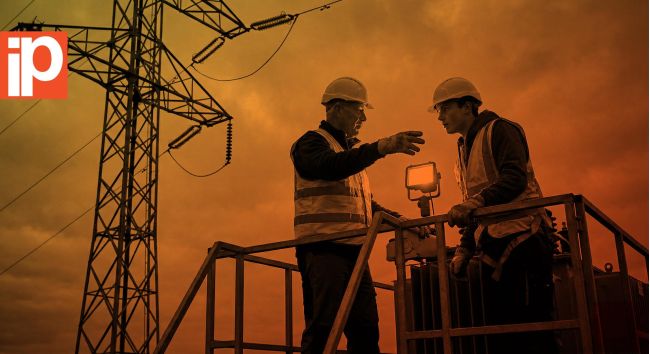
Peer Pressure, Trust and the Stewardship of Safety
In the demanding and often hazardous world of utility work, trust is not just a virtue – it’s a necessity. Crews rely on one another for productivity and survival.
Yet peer pressure is one of the most underestimated threats to both trust and a strong safety culture. When it creeps into safety decisions, peer pressure does more than compromise individual judgment. It undermines the very foundation of a crew’s collective responsibility.
This Tailgate Topic explores three critical topics: (1) how peer pressure affects trust; (2) the reasons it has no place in a healthy safety culture; and (3) why the values of being your brother’s keeper and a steward of safety must always triumph.
Peer Pressure Erodes Trust
In its simplest form, peer pressure is the influence exerted by members of a group to encourage conformity within that group. This influence can seem subtle in a high-risk trade like line work – maybe there’s a joke about wearing extra PPE, a look of impatience when someone double-checks grounding or a silent expectation to hurry up – but its consequences are anything but subtle.
When workers feel pressured to overlook hazards, bypass procedures or ignore their gut instincts, they begin to distrust their own judgment and the intentions of their crew, diminishing their self-confidence and their confidence in their team.
Erosion of trust typically creates a ripple effect. For example, an apprentice who once asked questions now stays silent. The journeyman who used to provide mentoring now shrugs and follows. A foreman who was once a safety advocate begins to prioritize production. Over time, crews become fractured, operating with an unspoken rule: Don’t rock the boat.
And in high-voltage environments, that unspoken rule can be fatal.
Replace Peer Pressure With Peer Empowerment
A great safety culture is built on psychological safety, or the ability to speak up, raise concerns and stop work without fear of ridicule, punishment or exclusion. Peer pressure is the antithesis of psychological safety’s core principles.
When this pressure exists, near-miss reporting declines, risk tolerance increases, accountability becomes selective, and the truth gets filtered – compromising safety, compliance, training and crew morale. No number of policies or safety meetings can compensate for a culture in which people are afraid to voice their concerns. And this is not just about “bad apples”; even well-meaning workers can succumb to peer pressure if the group signals that compliance is secondary to “getting ’er done.”
In great safety cultures, peer pressure has been replaced by peer empowerment, a shared understanding that safety is not just the foreman or safety director’s job – it’s everyone’s job, and everyone has the right and responsibility to speak up.
Beyond Symbolism
In the electric utility industry, the idea of being your brother’s keeper is more than symbolic; it’s operational. Being your brother’s keeper means having the moral courage to look after the person beside you even when it’s uncomfortable or unpopular. For instance, it means saying:
- “You forgot your sleeves.”
- “Let’s double-check that grounding.”
- “We’re stopping here until it’s safe to proceed.”
This kind of leadership doesn’t require a title, but it does require conviction. A true safety steward does not wait until a serious incident occurs to speak up. They don’t employ silence as a strategy or allow camaraderie to evolve into complacency. Real brotherhood protects the people and the process, helping to ensure that everyone goes home after work, every time. Demonstrating a high level of commitment to one another and genuinely caring for each crew member build trust and influence that fortify the safety culture.
Organizations that embody these principles elevate their safety standard from compliance to culture. They move from having safety rules to having safety values. They empower their people to intervene, support and lead even when no one’s watching.
Courage Over Comfort
Giving in to peer pressure may offer temporary comfort, allowing you to avoid confrontation, blend in or save time. But courage to speak up and ask questions is what helps to sustain lives and legacies.
Trust is built as crew members consistently demonstrate they have each other’s backs. It is shattered the moment someone is pressured to compromise what they know is right.
In the end, every worker must choose: Will I go along, or will I stand up?
Stop-work authority isn’t just for a privileged few. Five, six or 10 extra steps will always be better than one serious injury or fatality.
Let’s choose to stand up for safety, each other and the next generation of lineworkers who will become part of the culture we choose to create today.
About the Author: Daniel Cooper, CSP, CUSP, serves as an area and off-site coordinator for American Line Builders Apprenticeship & Training (https://albat.org). He was named the 2024 IBEW Instructor of the Year and has 20 years of combined operations and safety experience in the electric transmission and distribution industry.

